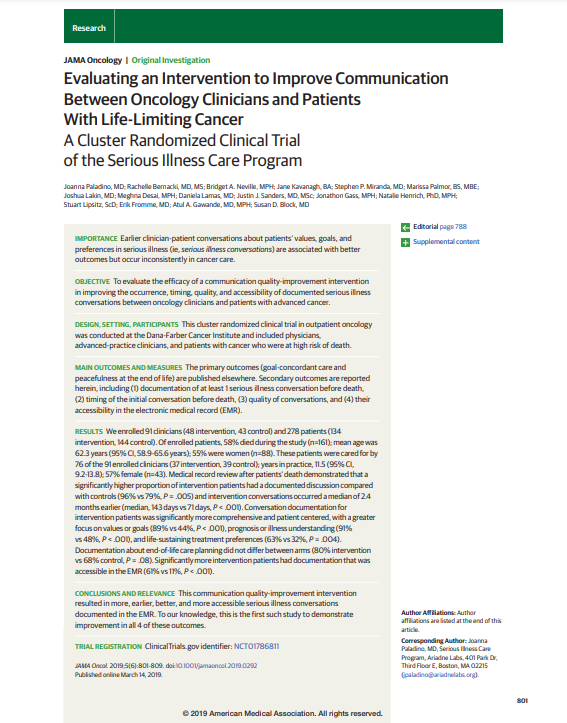Headline
A communication enhancement program improves frequency, quality, and documentation of serious illness conversations between oncology clinicians and patients with advanced cancer.
Context
Conversations between clinicians and patients with serious illness about patient goals typically take place one month before death and the details from these conversations are inconsistently entered in electronic medical records (EMR). The Serious Illness Care Program (SICP) assists clinicians to improve the quality of serious illness conversations by offering training, templates, and conversation guides. This study supplements another study on outcomes of using SICP with oncology clinicians and their patients.
Findings
Using a randomized control trial design, the authors reviewed patient records and EMR notes to analyze frequency, quality, and documentation outcomes of conversations with patients about their goals for care and treatment. Intervention group clinicians received SICP resources and training. The authors found that the intervention group had a greater number of documented conversations than the control group, and the conversations were more in-depth regarding prognosis, treatment preferences, and care planning. Additionally, conversations in the intervention group took place on average two months earlier than the control group.
Takeaways
SICP can help clinicians facilitate and document high-quality conversations with patients who have a serious illness to support their care goals and preferences. The model can be implemented in other care settings and specialties to improve patient-clinician communication.

